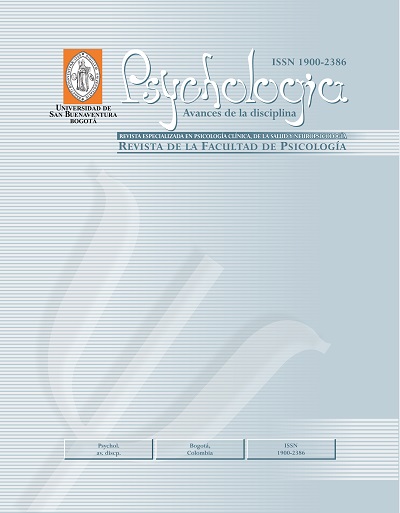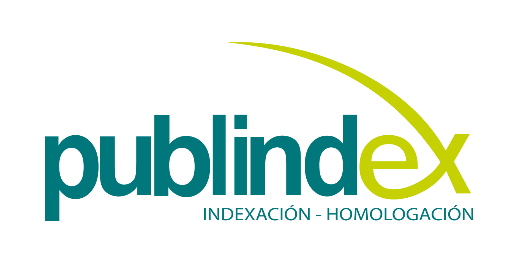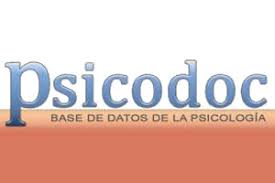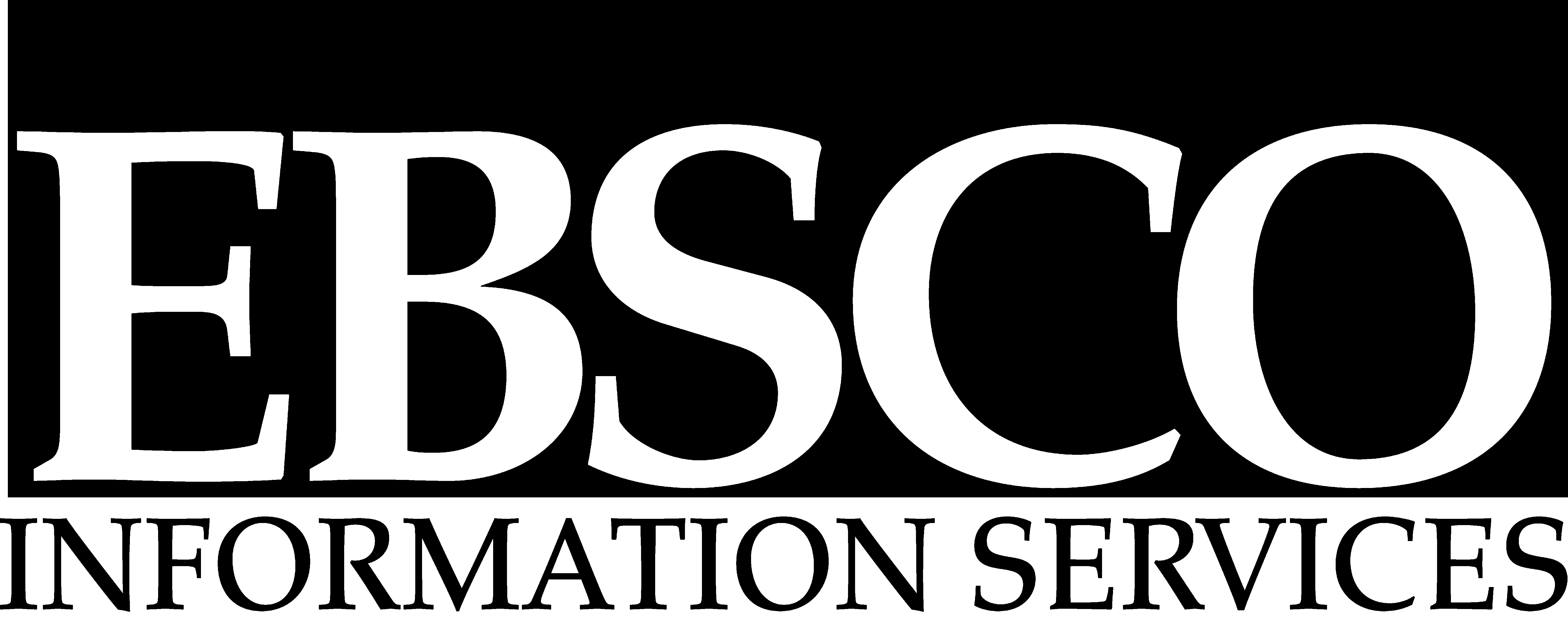Esta revista proporciona un acceso abierto inmediato a su contenido, basado en el principio de que ofrecer al público un acceso libre a las investigaciones ayuda a un mayor intercambio global de conocimiento.
Por tanto se acoge a la Licencia Creative Commons 4.0 Atribuciones Reconocimiento – NoComercial – CompartirIgual (by-nc-sa): No se permite un uso comercial de la obra original ni de las posibles obras derivadas, la distribución de las cuales se debe hacer con una licencia igual a la que regula la obra original.
http://creativecommons.org/licenses/by-nc-sa/4.0/
Resumen
El objetivo de este estudio fue doble: analizar las relaciones entre la personalidad de los empleados (operacionalizada como núcleo de autoevaluaciones, NAE) y el enriquecimiento trabajo-familia (ETF); y examinar si las percepciones de justicia distributiva desempeñan un rol mediador en tales relaciones. Se realizó una verificación empírica de corte transversal sobre 386 empleados de organizaciones públicas y privadas localizadas en Argentina. Análisis de ecuaciones estructurales indicaros un adecuado ajuste para un modelo de mediación total (S-Bχ2 = 3.18, GFI= .99, CFI= .99, RMSEA= .03), en el que las percepciones de justicia distributiva median las relaciones del NAE con ETF (γ = .13, IC= [-.03; .27]) y con EFT (γ = .09, IC= [-.08; .25]). Se discuten los resultados a la luz de sus implicaciones prácticas. Este estudio proporciona información valiosa para que directivos organizacionales y gerentes de recursos humanos focalicen sus esfuerzos tanto en el desarrollo de los rasgos del NAE, como en la creación de ambientes de
trabajo justos.
Palabras clave:
Referencias
Bakker, A. B., & Demerouti, E. (2016). Job demands-resources theory: Taking stock and looking forward. Journal of Occupational Health Psychology, 22(3), 273-285. https://doi.org/10.1037/ocp0000056
Baral, R., & Bhargava, S. (2011). Predictors of work-family enrichment: moderating effect of core self-evaluations. Journal of Indian Business Research, 3, 220-243. https://doi.org/10.1108/17554191111180573
Bentler, P. (2006). EQS 6 Structural Equations Program Manual. Los Angeles, CA: Multivariate Software Inc.
Boyar, S., & Mosley, D. C. (2007). The relationship between core self-evaluations and work and family satisfaction: The mediating role of work-family conflict and facilitation. Journal of Vocational Behavior, 71, 265-281. https://doi.org/10.1016/j.jvb.2007.06.001
Brummelhuis, L. L., & Bakker, A. B. (2012). A resource perspective on the work-home interface. American Psychologist, 67, 545-556. https://doi.org/10.1037/a0027974
Byron, K. (2005). A meta-analytic review of work-family conflict and its antecedents. Journal of Vocational Behavior, 67, 169-198. https://doi.org/10.1016/j.jvb.2004.08.009
Carlson, D. S., Kacmar, M. K., Wayne, J. H., & Grzywacz, J. G. (2006). Measuring the positive side of the work-family interface: Development and validation of a work-family enrichment scale. Journal of Vocational Behavior, 68, 131-164. https://doi.org/10.1016/j.jvb.2005.02.002
Chang, Ch.H., Ferris, D. L., Johnson, R.E., Rosen, C.C. & Tan, J.A. (2012). Core Self- Ealuations: A review and evaluation of the literature. Journal of Management, 38(1), 81-128. https://doi.org/10.1177/0149206311419661
Colquitt, J. A., Scott, B. A., Rodell, J. B., Long, D. M., Zapata, C. P., Conlon, D. E., & Wesson, M. J. (2013). Justice at the millennium, a decade later: A meta-analytic test of social exchange and affect-based perspectives. Journal of Applied Psychology, 98, 199-236. https://doi.org/10.1037/a0031757
Cropanzano, R., Bowen, D. E., & Gilliland, S. W. (2007). The management of organizational justice. Academy of Management Perspectives, 21, 34-48. https://doi.org/10.5465/AMP.2007.27895338
Fulcher, M. & Coyle, E.F. (2011). Breadwinner and caregiver: A cross-sectional analysis of children´s and emerging adults’ visions of their future family roles. British Journal of Developmental Psychology, 29(2), 330-346. https://doi.org/10.1111/j.2044-835X.2011.02026.x
Greenhaus, J. H., & Powell, G. N. (2017). Making work and family work: From hard choices to smart choices. Florence, KY: Taylor & Francis.
Grzywacz, J. C., & Butler, A. B. (2005). The impact of job characteristics on work-to-family facilitation: testing a theory and distinguishing a construct. Journal of Occupational Health Psychology, 10, 97-109. https://doi.org/10.1037/1076-8998.10.2.97
Hair, J. E., Black, W. C., Babin, B. J., Anderson, R. E., &Tatham, R. L. (2010). Multivariate data analysis (6th ed.). Upper Saddle River, NJ: Pearson-Prentice Hall.
Henseler, J., Ringle, C. M., & Sarstedt, M. (2015). A new criterion for assessing discriminant validity in variance-based structural equation modelling. Journal of the Academy of Marketing Science, 43(1), 115-135. https://doi.org/10.1007/s11747-014-0403-8
Hogg, M. A. (2016). Social Identity Theory. In McKeown, S., Haji, R. & Ferguson, N. (Eds.),
Understanding peace and conflict through social identity theory contemporary global perspectives (pp.3-18). Cham, Switzerland: Springer International Publishing.
Jiang, Z., Wang, Z., Jing, X., Wallace,R., Jiang, X., & Kim, D. (2017). Core self-evaluation: Linking career social support to life satisfaction. Personality & Individual Differences, 112, 128-135. https://doi.org/10.1016/j.paid.2017.02.070
Judge, T., Bono, J., Erez, A., & Locke, E. (2016). Core self-evaluations and job and life satisfaction: The role of self-concordance and goal attainment. In G. Boyle, J. O'Gorman, & G. Fogarty (Eds), Work and organisational psychology: Research methodology. Assessment and selection. Organisational change and development. Human resource and performance management. Emerging trends: Innovation/globalisation/technology (pp145-169.) Thousand Oaks, CA: Sage Publications.
Judge, T. A., Erez, A., Bono, J. E., & Thoresen, C. J. (2003). The Core Self-Evaluations Scale (CSES): Development of a measure. Personnel Psychology, 56, 303-331. https://doi.org/10.1111/j.1744-6570.2003.tb00152.x
Kim, T., Liden, R., Kim, S., & Lee, D. (2015). The Interplay between follower core self-evaluation and transformational leadership: Effects on employee outcomes. Journal of Business & Psychology, 30(2), 345-355. https://doi.org/10.1007/s10869-014-9364-7
Kossek, E. E., Baltes, B. B., & Matthews, R. A. (2011). How work-family research can finally have an impact in organizations. Industrial and Organizational Psychology: Perspectives on Science and Practice, 4, 352-359. https://doi.org/10.1111/j.1754-94342011. 01353.x
Lee, S., Lei, M., & Brody, G. (2015). Constructing confidence intervals for effect size measures of an indirect effect. Multivariate Behavioral Research, 50(6),600-613. https://doi.org/10.1080/00273171.2015.1040542
Lee, H. R., Murrmann, S. K., Murrmann, K. F., & Kim, K. (2010). Organizational justice as a mediator of the relationships between leader-member exchange and employees’ turnover intentions. Journal of Hospitality Marketing & Management, 19, 97-114. https://doi.org/10.1080/19368620903455237
Lv, A., Shen, X., Cao, Y., Su, Y., & Chen, X. (2012). Conscientiousness and organizational citizenship behavior: the mediating role of organizational justice. Social Behavior and Personality, 40, 1293-1300. https://doi.org/10.2224/sbp.2012.40.8.1293
Ma, H., Shen, C., Yang, J., Tang, H., & Xie, J. (2014). Boundary flexibility and work-family conflict and enrichment: From person-environment fit perspective. Acta Psychologica Sinica, 46(4), 540-551. https://doi.org/10.3724/sp.j.1041.2014.00540
Mäkikangas, A., Kinnunen, U., Mauno, S., & Selenko, E. (2016). Factor structure and longitudinal factorial validity of the Core Self-Evaluation Scale: Exploratory structural equation modeling. European Journal of Psychological Assessment [Electronic version]. Retrieved from: http://dx.doi.org/10.1027/1015-5759/a000357
Marks, S. R. (1977). Multiple roles and role strain: Some notes on human energy, time and commitment. American Sociological Review, 42, 921-936. https://doi.org/10.2307/2094577
Michel J. & Clark, M. (2013). Investigating the relative importance of individual differences on the work-family interface and the moderating role of boundary preference for segmentation. Stress and Health: Journal of the International Society for the Investigation of Stress, 29(4), 324-36. https://doi.org/10.1002/smi.2474
Moazami-Goodarzi, A., Nurmi, J., Mauno, S., & Rantanen, J. (2015). Cross-lagged relations between work–family enrichment, vigor at work, and core self-evaluations: A three-wave study. Journal of Business and Psychology, 30(3), 473-482. https://doi.org/10.1007/s10869-014-9376-3
Moazami-Goodarzi, A., Rantanen, J., Nurmi, J. E., & Mauno, S. (2015). Work–Family boundary management profiles in two finnish samples: A person-oriented approach. International Journal of Business Administration, 6(6), 12-25. https://doi.org/10.5430/ijbav6n6p12
Morganson, V. J., Litano, M. L., & O’Neill, S. K. (2014). Promoting work-family balance through positive psychology: A practical review of the literature. The Psychologist Manager Journal, 17, 221-244. https://doi.org/10.1037/mgr0000023
Omar, A. (2017). Justicia organizacional. En Littlewood, H. & Uribe Prado F. (Eds.), Psicología organizacional en Latinoamericana: un enfoque de comportamiento, productividad y factores psicosociales para académicos, estudiantes y consultores (pp. 336-379). México, DF: Universidad Autónoma de México.
Omar, A., Vaamonde, J.D., Salessi, S., & Urteaga. F. (en prensa). Psychometric properties of Colquitt’s Organizational Justice Scale in Argentinean workers. Paidéia (Ribeirão Preto).
Omar, A. (2009). The moderating role of interpersonal justice on the relationship between Eysenckian personality dimensions and employee voice and employee silence. In A. Antoniou, C. Cooper, G. Chrousos, Ch. Spielberger, & M. Eysenck (Eds.), Handbook of managerial behavior and occupational health (pp. 143-156). London, UK: Edward Elgar Publishing.
Podsakoff, P. M., MacKenzie, S. B., & Podsakoff, N. P. (2012). Sources of method bias in social science research and recommendations on how to control it. Annual Review of Psychology, 63, 539-569. https://doi.org/10.1146/annurev-psych-120710-100452
Powell, G. N., & Greenhaus, J. H. (2010). Sex, gender, and the work-to-family interface: Exploring negative and positive interdependencies. Academy of Management Journal, 53, 513-534. https://doi.org/10.5465/amj.2010.51468647
Qing, G. & Zhou, R. (2017). Bidirectional work–family enrichment mediates the relationship between family-supportive supervisor behaviors and work engagement. Social Behavior and Personality: An international journal, 45, 299-308. https://doi.org/10.2224/sbp.6023
Rantanen, J., Kinnunen, U., & Pulkkinen, L. (2013). The role of personality and role engagement in work-family balance. Horizons of Psychology, 22, 14-26. https://doi.org/10.20419/2013.22.376
Sahin, S. (2013). Mediator role of organizational justice in the relationship between learning organization and organizational commitment. International Journal of Academic Research Part B, 5(6), 57-67.
Tabachnick, B. G., & Fidell, L. S. (2013). Using multivariate statistics (6th ed.). Boston, MA: Pearson.
Wayne, J., Casper, W., Matthews, R., & Allen, T. (2013). Family-supportive organization perceptions and organizational commitment: the mediating role of work-family conflict and enrichment and partner attitudes. Journal of Applied Psychology, 98(4), 606-22. https://doi.org/10.1037/a0032491
Zheng, C., Molineux, J., Mirshekary, & Scarparo, S. (2015). Developing individual and organisational work-life balance strategies to improve employee health and wellbeing. Employee Relations, 37, 354-379. https://doi.org/10.1108/er-10-2013-0142






















